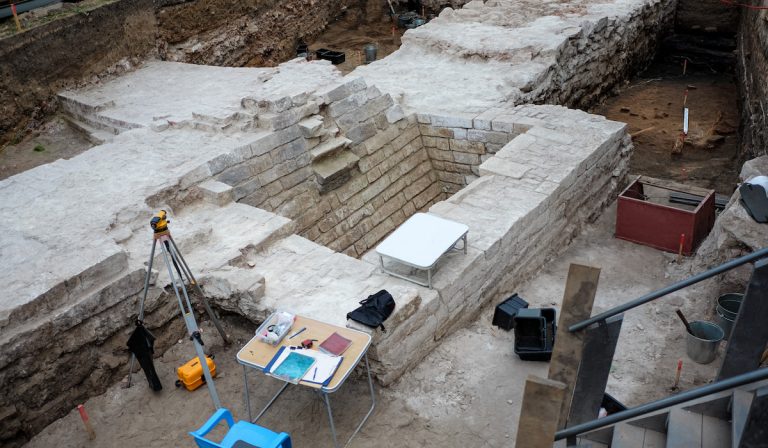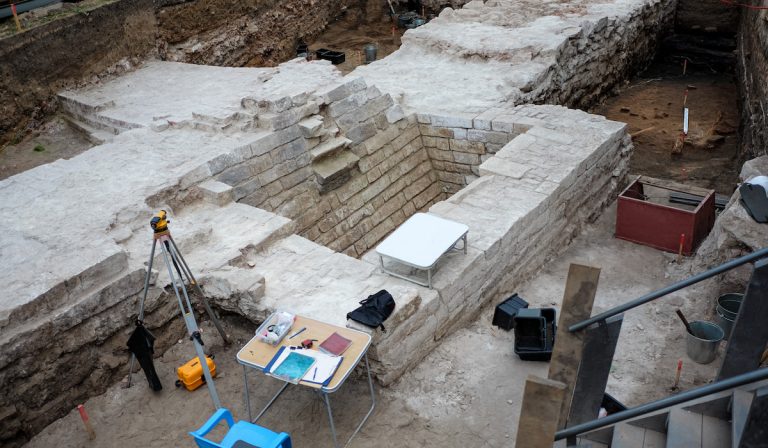15 Fun Paleontology Jobs
Many of us developed a fascination for fossils and extinct life as children. But over time, such interests tend to fade. This loss of interest is probably due to the seemingly limited job opportunities and low salaries in paleontology.
Most paleontology careers require an advanced degree like a master’s or doctorate. And although some universities offer a degree in paleontology, most of the coursework is taught by the geology department.
Overall, one must be well-versed in systematics, evolution, and ecology for success.
While it may seem like opportunities in paleontology are limited, there are actually some positions you may not have considered.
In this article, we discuss 15 fun paleontology jobs.
1. Vertebrate Paleontologist

A vertebrate paleontologist is a person who studies ancient animals that possess a vertebral column.
Vertebrate paleontologists study animals like birds, fish, reptiles, and amphibians. As a vertebrate paleontologist, you will be working regularly with fossils.
Your role as a vertebrate paleontologist also involves finding and reconstructing the skeletons of cats, turtles, dinosaurs, and other prehistoric animals. Your aim will be to show how they have evolved throughout history.
Vertebrate paleontologists can also find jobs in the medicine or dentistry department of a university. To become a vertebrate paleontologist, you need a master’s degree, although a few institutions may request a Ph.D.
As a vertebrate paleontologist, you can earn an annual median salary of around $62,000.
2. Museum Curator
Probably one of the most exciting paleontology jobs is working as a museum curator. As a museum curator, you can get employment in the non-geological or geological department of a museum.
Your role as a museum curator will be to set up lectures and events and monitor the condition of the museum’s collections. In some instances, you could serve as a consultant for new archeological finds or claims. This position does not involve a lot of academic research.
There is a lot of competition in this field, so to work as a museum curator, you need a master’s degree, but most times Ph.D. is required.
Your annual median salary working as a museum curator is around $56,000. The salary depends on the size and location of the museum.
3. State or National Park Ranger Generalist

Some state or national parks require people with paleontology backgrounds to work as park rangers. Most of these parks tend to have a high concentration of fossils.
Although there are not many positions available, your knowledge in paleontology will make you a great addition to any park. To work as a park ranger, you need a bachelor’s degree.
As a park ranger generalist, you can earn an annual median salary of around $35,000.
4. Paleontology Lab Manager
As a paleontologist, you can work as a lab manager in the industrial sector. But to get a role, you need a master’s degree in biology or paleontology.
As a paleontology lab manager, you can get employed in a consulting company or environmental company. You will be working with companies in charge of mining, highway construction, drilling for natural gas and oil, utilities like cable, production of oil/gas pipelines, etc.
All these companies are required to uphold the laws governing the collection of fossils. As a paleontology lab manager, your duties will be to collect and prepare fossils.
The annual median salary of a paleontology lab manager is around $78,000.
5. Ichnologist
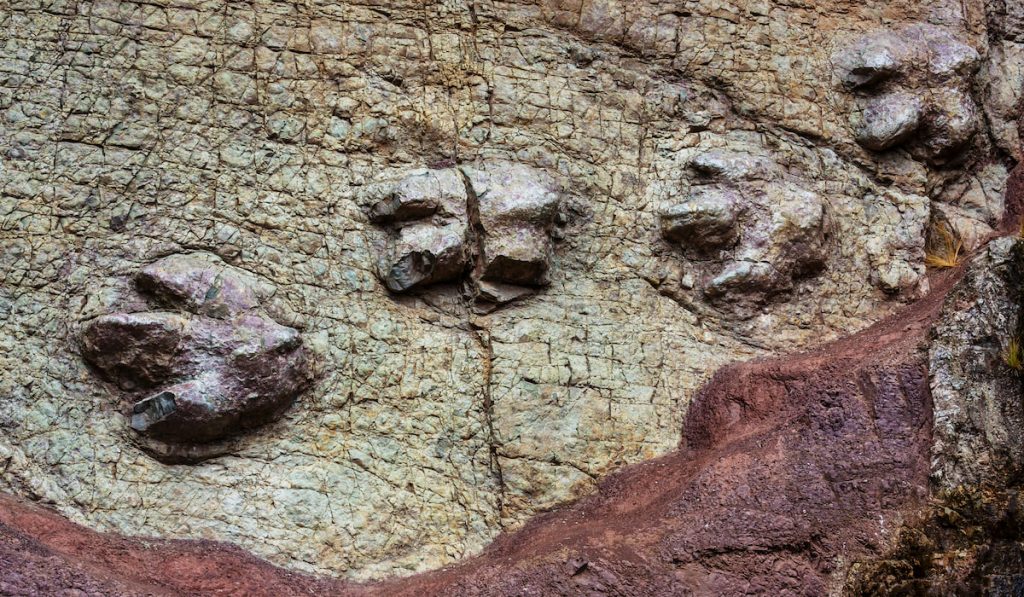
Another fun paleontology job is Ichnology. As an ichnologist, your job will be to study trace fossils. Trace fossils are marks preserved in the substrate that reveal the activity of organisms. An example of a trace fossil is the impression left by a dinosaur footprint.
Ichnology is often considered an earth science. To pursue a career in Ichnology, you need a master’s degree in either biology, paleontology, or geology.
The annual median salary of an Ichnologist is around $80,000.
6. Paleoceanography/Paleoclimatology
Another career option in paleontology is Paleoceanography, where your focus will be on past ocean climates. Or Paleoclimatology, where you will study biogeochemical cycles. Both careers focus on the Earth’s geographical history.
They also involve studying atmospheric changes, climate behavior, ocean changes, and Earth’s orbit to enable forecasting. You will get to analyze organic biomarkers, ocean and lake sediments, and isotopic tracers.
You can find employment in government organizations, academia, charities, or private businesses. A career in Paleoclimatology or Paleoceanography requires a Ph.D. in paleontology or related Earth or natural sciences.
You can earn an annual median salary of around $101,000 working in a government organization. For professional service employees, the average is about $89,000.
7. Human Paleontologists or Paleoanthropologists
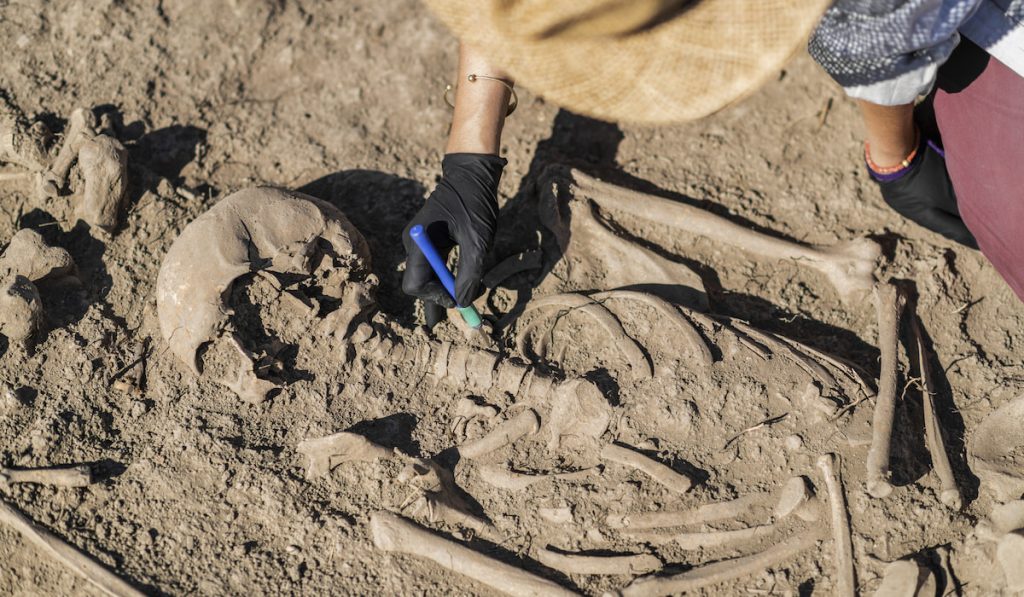
A career as a human paleontologist is bound to be exciting. As a human paleontologist, you will be researching the origins, evolution, and development of prehistoric humans and pre-human humanoids.
Your research will include some ethnology & archaeology techniques. Of such are radioactive decay rates and comparative anatomy. You will also need to have extensive knowledge of physical sciences.
As a human paleontologist, you can get employed in geological surveys, museums, universities, and other related organizations.
The annual median salary of a human paleontologist in academia is $73,000, but outside academia, you can earn around $54,000.
8. Science Journalism
You can pursue a career as a television researcher or science journalist with your paleontology experience and degree.
As a television researcher, you will help produce documentaries that require the knowledge of a paleontologist.
The job also involves tracking down tapes and scanning archival footage. As a science journalist, you can get employed with science-related publications and professional journals.
To get employment as a television researcher bachelor’s degree is required. Depending on the position, you may need a master’s degree.
The annual median salary for a television researcher is around $55,000.
9. Paleontological Field Technician
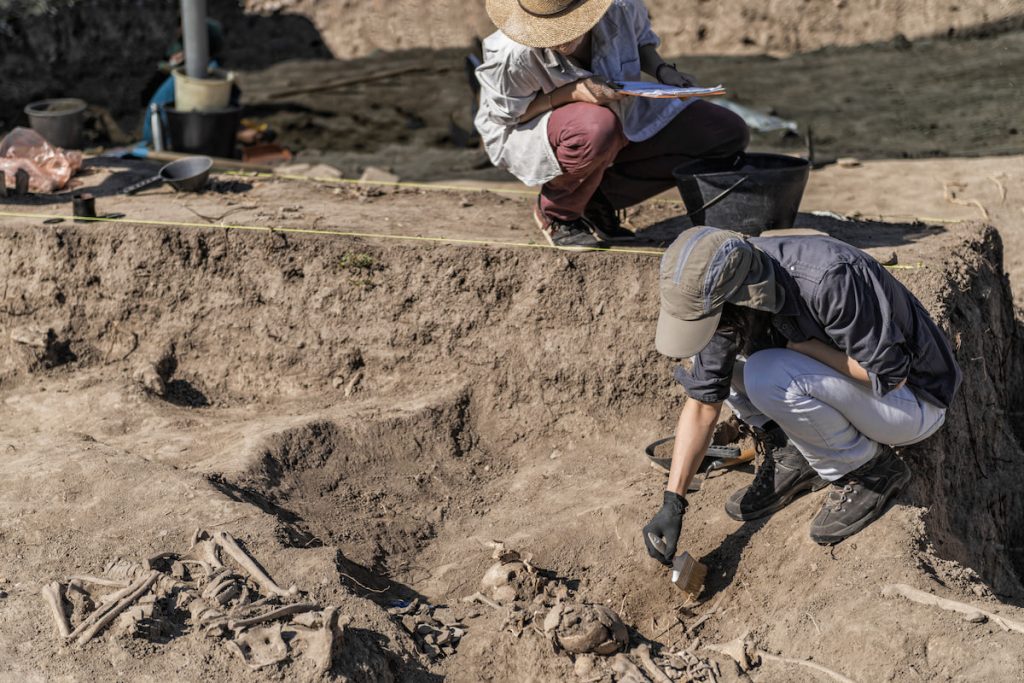
As a paleontological field technician, your job will be to assist field projects. Some of these projects will require you to work with a team, while others are solitary. For this role, you need a bachelor’s degree in biology, paleontology, or geology.
Work involves collecting and recording paleontologic, lithologic, and stratigraphic data. It also includes working on fossil salvages, excavations, surveys, etc. A paleontological field technician may also assist lab preparations for fossil analysis.
Depending on the employer and state, the annual median salary of a paleontological field technician is between $64,000 and $90,000.
10. Micropaleontologists
As a micropaleontologist, you will often find employment in the oil and gas industry. This applies due to the use of microfossils in this industry. Your job will be to conduct a paleoenvironment analysis on the microscopic fossils found during oil and gas exploration.
To have a career as a micropaleontologist, you need a bachelor’s degree. As a professional, you can also opt for a master’s degree in geology and go further by earning a Ph.D. in paleontology.
The annual median salary for a micropaleontologist is $85,000.
11. Paleoecologist
As a paleoecologist, your role is to conduct field research and, in the process, try to reconstruct past ecosystems using past climates and ecologies. You get to study, examine, and compare chemicals trapped in air pockets, animal fossils, flora, pollen, and spores.
A paleoecologist can get employed in environmental consulting firms, universities, and research labs. For this job, you need a bachelor’s degree in both geology and paleoecology.
The annual median salary for a paleoecologist is around $89,000.
12. Scientific Illustrator

If you are a trained artist, you can combine your art skills with your paleontology degree and become a scientific illustrator. This field is highly competitive, combining digital art with traditional art formats.
As a scientific illustrator, you will create life-like creatures with the aid of computer graphics. Paleontologists are often consulted on prehistoric movies. You can seek employment with various scientific websites, book publishers, science journals, and museum exhibits.
To be a scientific illustrator, you need a bachelor’s degree in paleontology and a master’s degree in scientific illustration.
The annual median salary for a scientific illustrator is around $52,000.
13. Forensic Taphonomist
Forensic taphonomy is an occupation that emerged from forensic anthropology. As a Forensic Taphonomist, you are to identify, interpret and document taphonomic agents from the corpses.
Once you collect the required samples, you will conduct the necessary tests. After the tests, you can then determine the type of changes caused by the taphonomic agents.
As a Forensic Taphonomist, you can seek employment in crime labs, science labs, universities, or the CDC.
The annual median salary for a Forensic Taphonomist is around $45,000.
14. Research Specialist

One of the main aspects of any job in paleontology is research. As a research specialist, you will spend a lot of time digging. Then after that, you take all your findings with you to the lab for analysis.
To be employed as a research specialist, you need a master’s degree. In some instances, depending on the employer and dig site, you need a Ph.D.
The median annual salary for a research specialist is around $75,000.
15. On-Call Paleontologist or Paleontology Principal Investigator
As an on-call paleontologist, you will work with a cultural resource for private industry or museums. Your duties will be to review geological maps, search and analyze museum records and do other research.
You will also prepare documents and reports like the National Environmental Policy Act. Your work could also affect mitigation plans. In the field, you will be providing support to paleontology monitors.
For this role, you need a bachelor’s degree in paleontology. You can further opt for a master’s degree in sedimentary geology or other related fields.
The annual median salary of an on-call paleontologist is around $125,000.
Resources:
- https://jobs.lovetoknow.com/careers-paleontology
- https://careertrend.com/info-8496399-much-money-do-paleontologists-make.html
- https://jurassicparkterror.net/paleontology-careers/
- https://nhm.org/research-collections/departments/vertebrate-paleontology
- https://www.careermatch.com/job-prep/career-insights/articles/top-paleontology-jobs/
- https://blog.everythingdinosaur.co.uk/blog/_archives/2010/12/19/4707174.html





